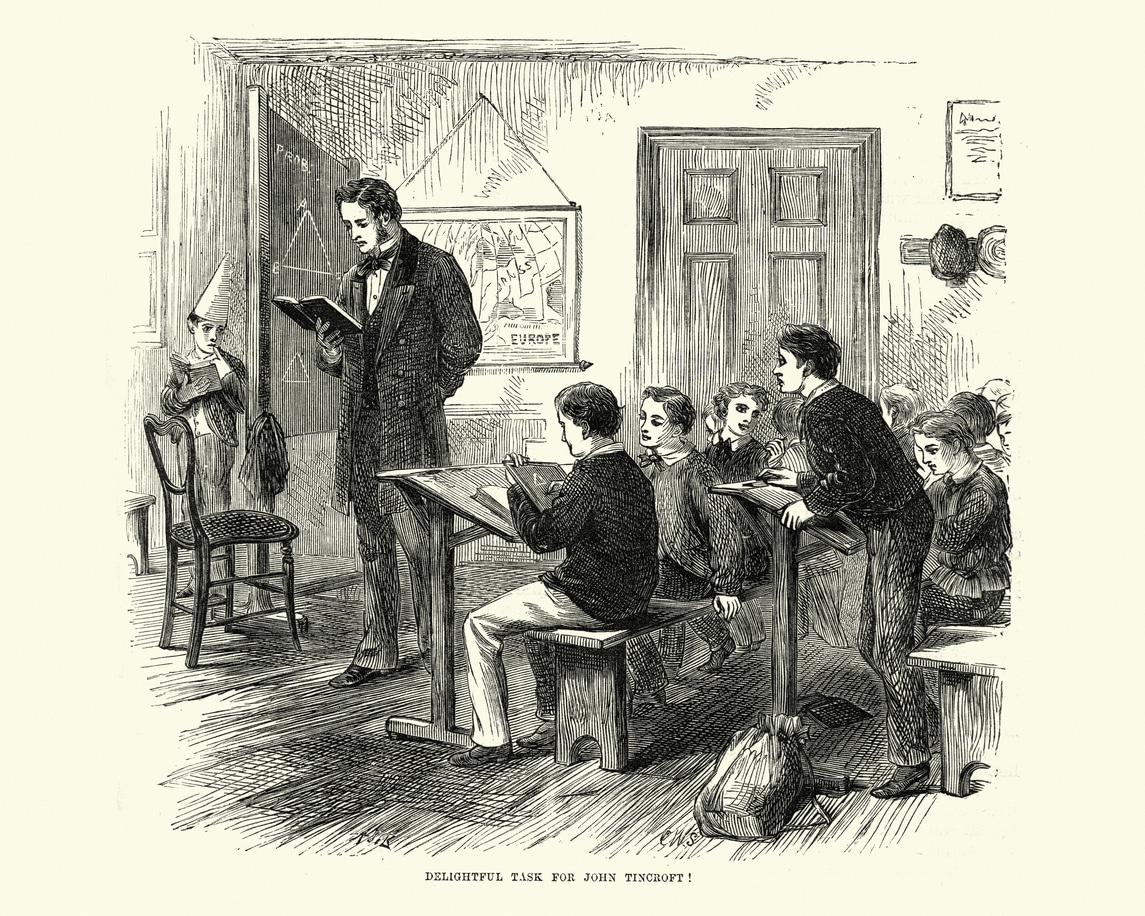In Mahanoy Area School District v. B.L., 594 U.S. ____ (2021), the U.S. Supreme Court ruled 8-to-1 that a school had improperly suspended a student from the junior varsity cheerleading team for posting vulgar language and gestures on Snapchat when she did not make the varsity squad.
The court majority relied largely on Tinker v. Des Moines (1972) and subsequent cases that protected student speech that did not cause undue disruption within a school.
In the solitary dissent in Mahanoy, Justice Clarence Thomas argued that Tinker lacked historical grounding and was at odds with 150 years of history. One of the major cases that Thomas relied on for proof was Lander v. Seaver, 32 Vt. 114 (1859), decided by the Vermont Supreme Court. Although the case did not cite freedom of speech, Thomas thought that it was relevant because it dealt, like Mahanoy, with speech that had taken place off campus.
Can teachers punish students for off-campus speech?
Lander raised the issue as to whether a schoolmaster had committed assault and battery against a student who was about 11 years old. The student had returned home from school and was driving his father’s cow by the teacher’s house when he called the teacher “Old Jack Seaver” in the presence of the teacher and some fellow classmates. The next day, the teacher reprimanded him and beat him with a small rawhide whip for the insulting language.
The court reversed a lower court judgment against the teacher.
Justice Asa Aldis, who authored the opinion, clearly thought that a teacher had the right to punish students for infractions that disrupted class during school hours. Although the student’s offensive words had taken place after hours, they nonetheless had “a direct and immediate tendency to injure the school, to subvert the master’s authority, and to beget disorder and insubordination.” Although a jury had the right to judge whether a teacher had acted out of bad motives or administered excessive punishment, the teacher, much like a parent administering similar discipline, should be given the benefit of the doubt in close cases.
Aldis likened the relationship between teacher and student to that between a master and a servant and to that of a parent and a child. Invoking the doctrine of in loco parentis, he thought that the need for school discipline was similar to the need for similar discipline at home.
Aldis further based his decision in part on the fact that the student had not claimed excessive punishment during the first trial.
Early courts permitted harsh discipline for student misbehavior
The case shows that early courts permitted fairly harsh discipline even for behavior that did not take place on school grounds. Its failure to mention the First Amendment, and the fact that it was rendered prior to the adoption of the Fourteenth Amendment, which eventually applied the First Amendment to the states, however, and its constant analogy to master/servant relationships, arguably undercuts its applicability to modern school law.
John R. Vile is a Professor of Political Science and Dean of the University Honors College at Middle Tennessee State University. This article was published June 2021.

